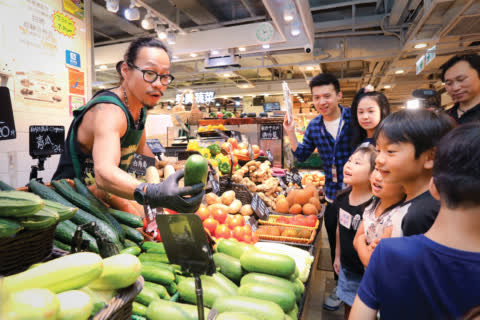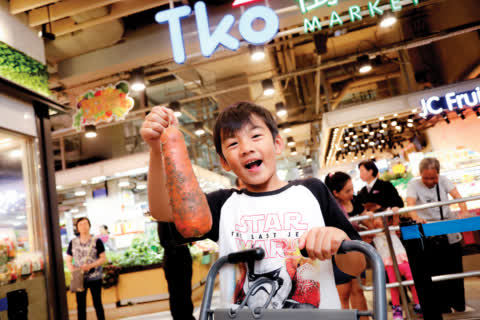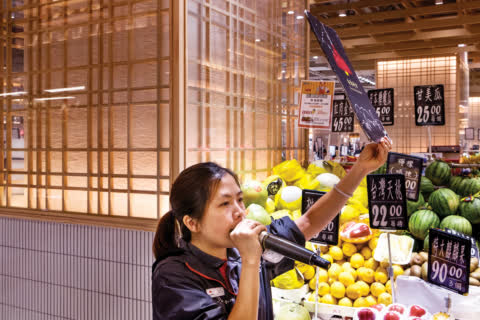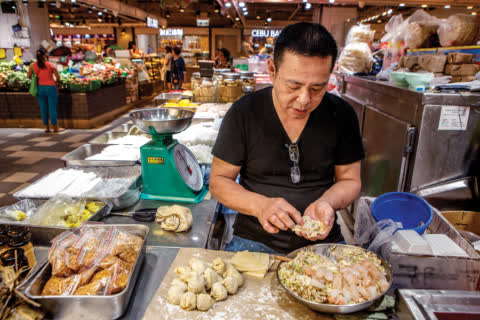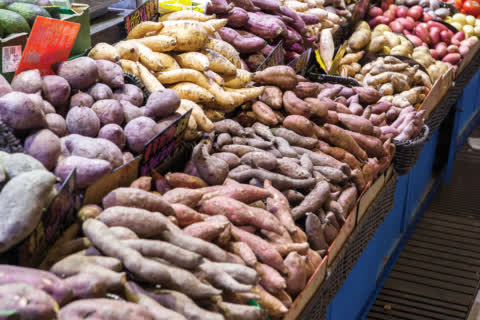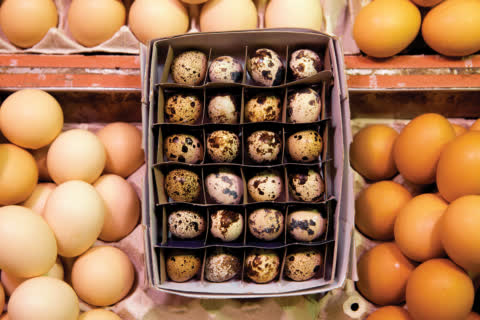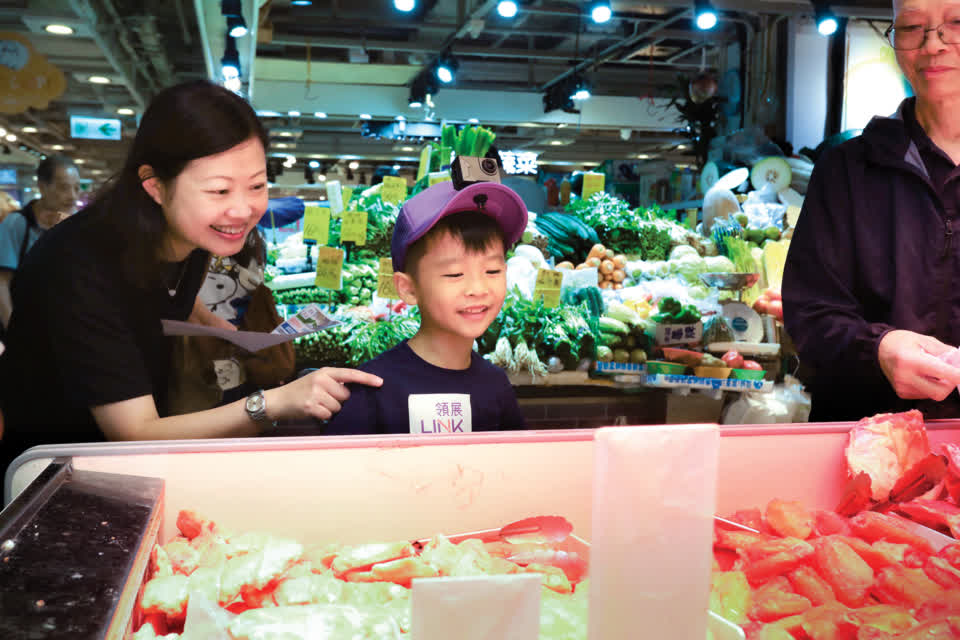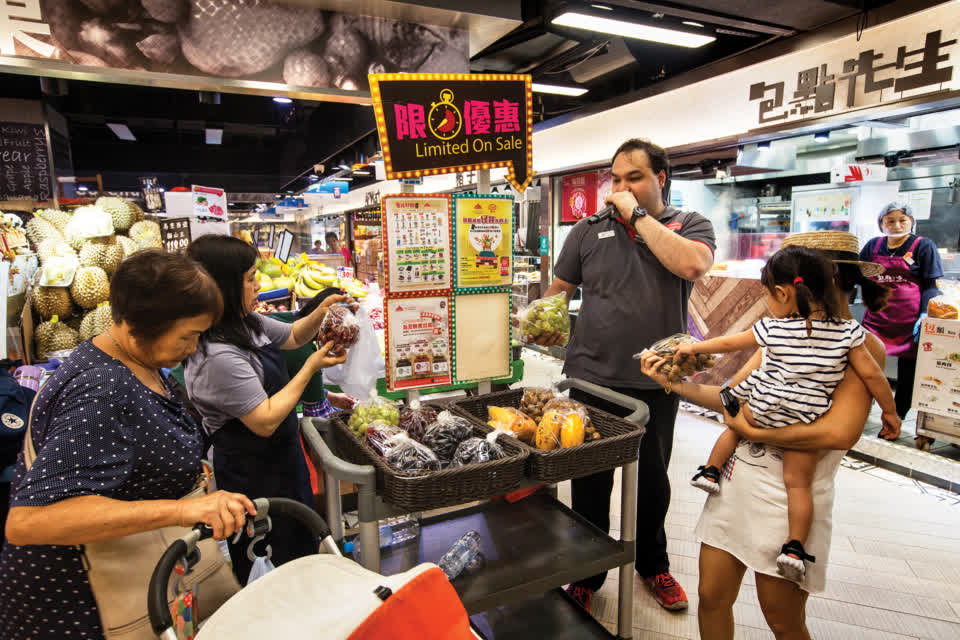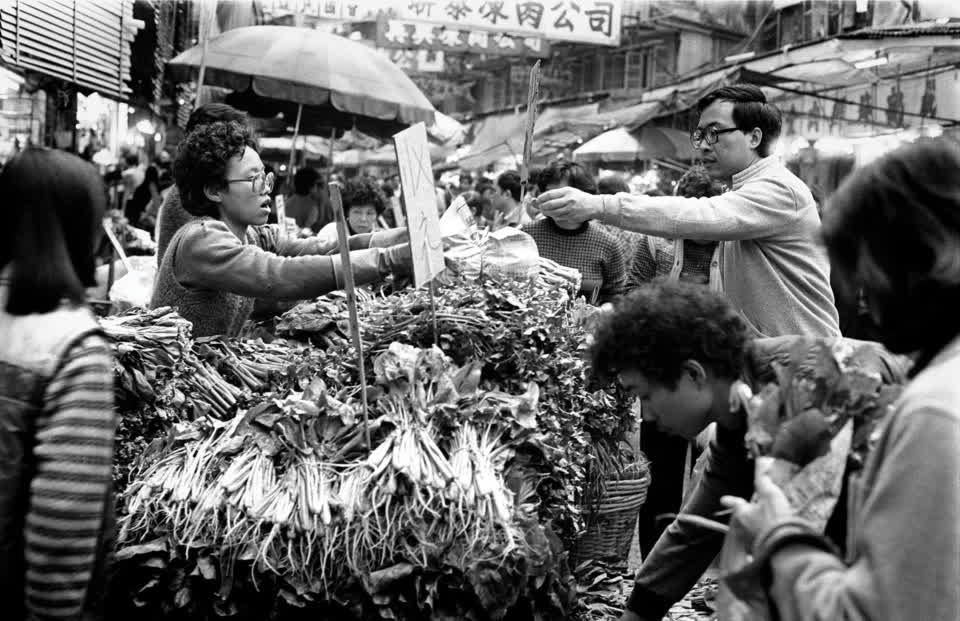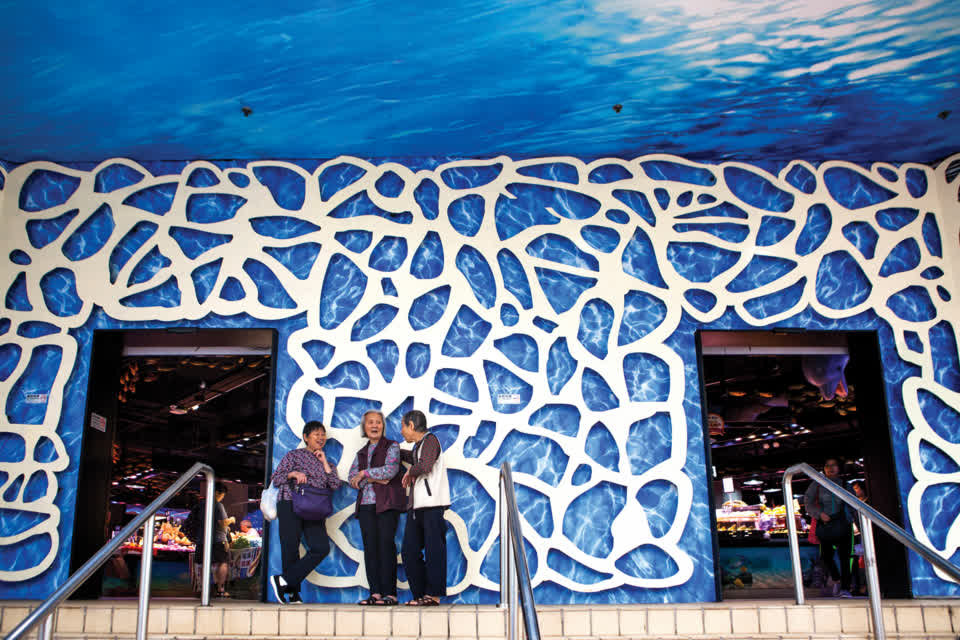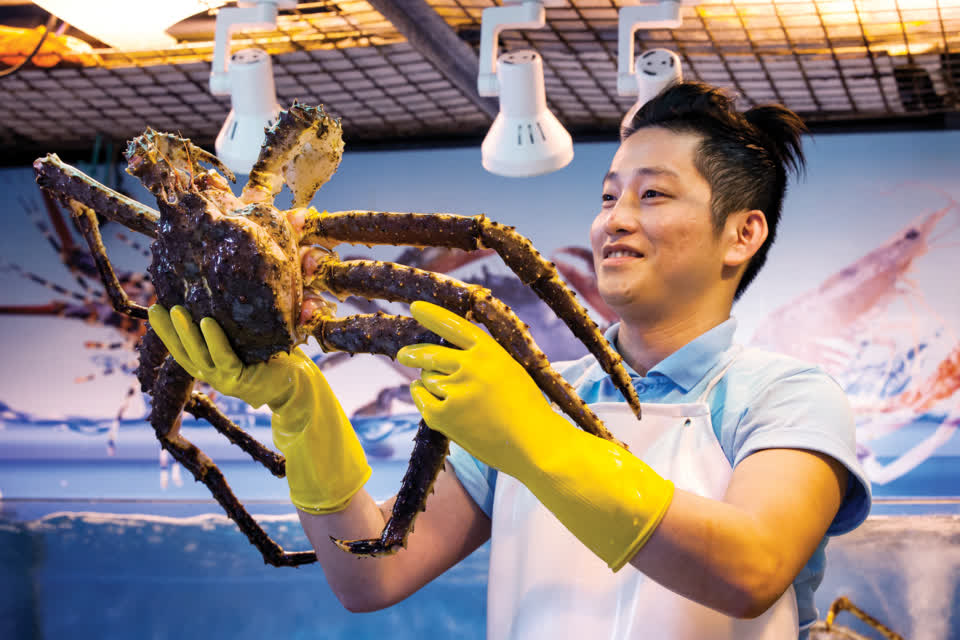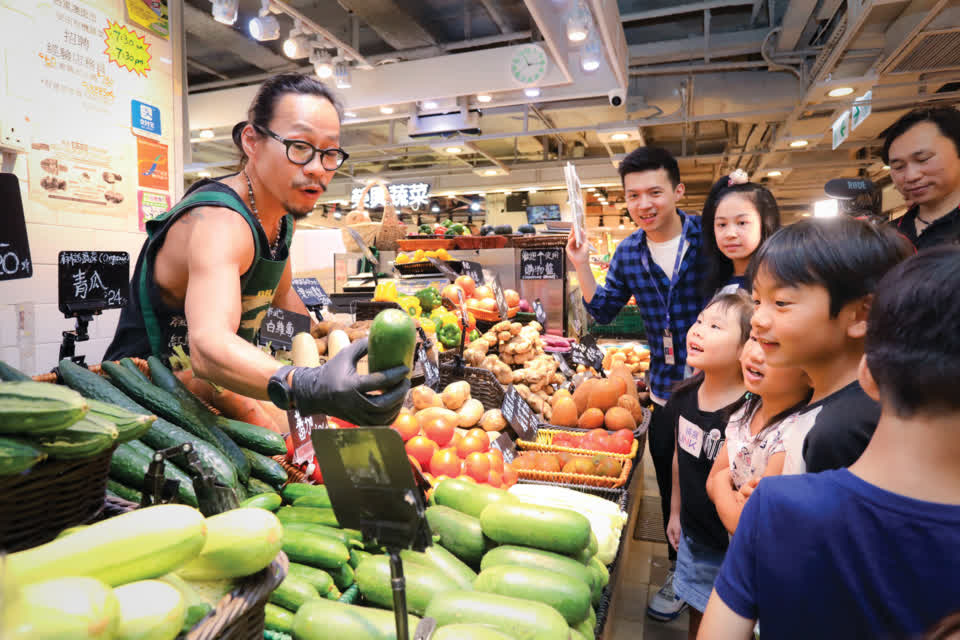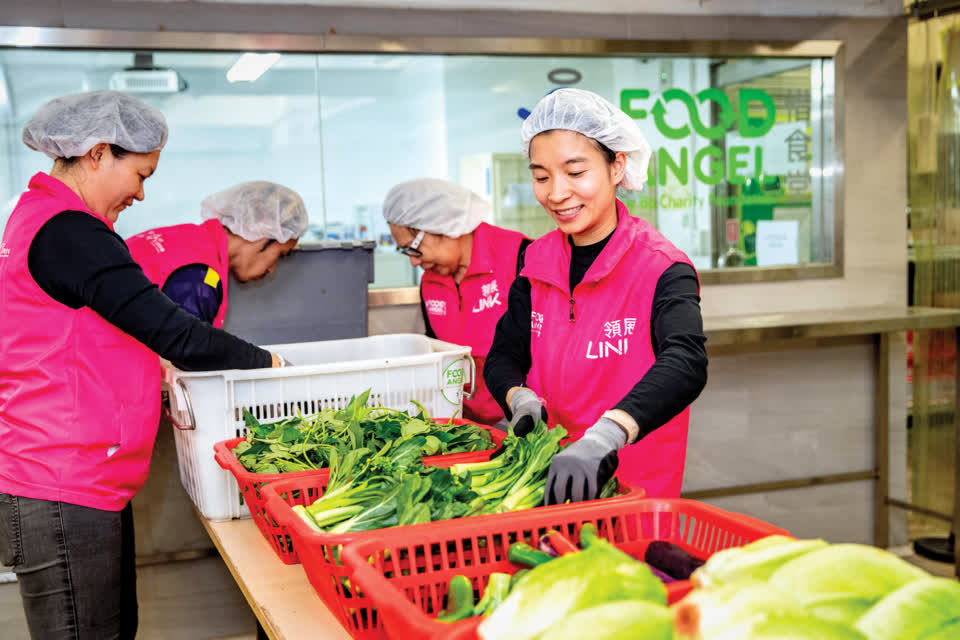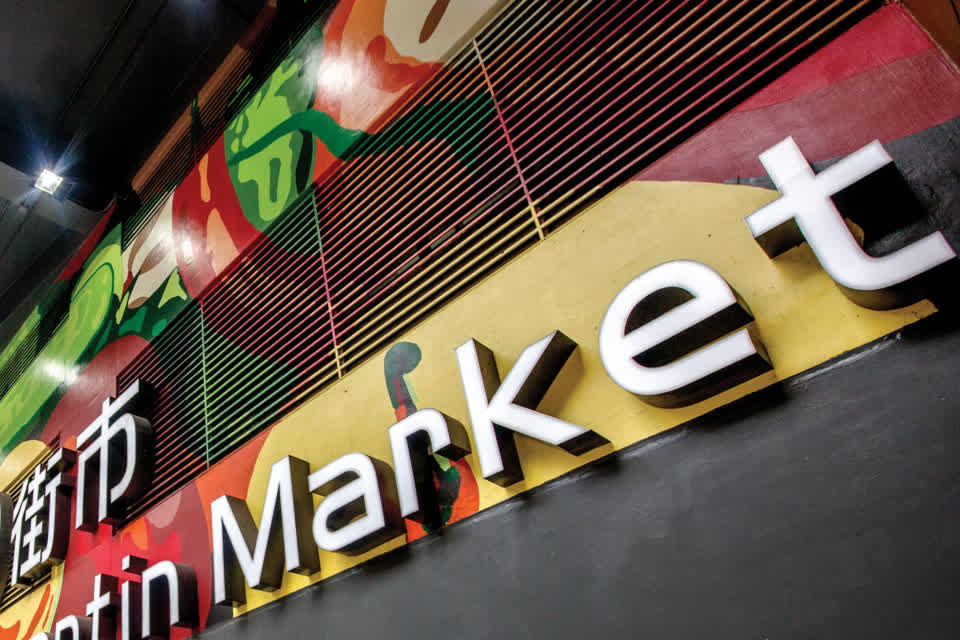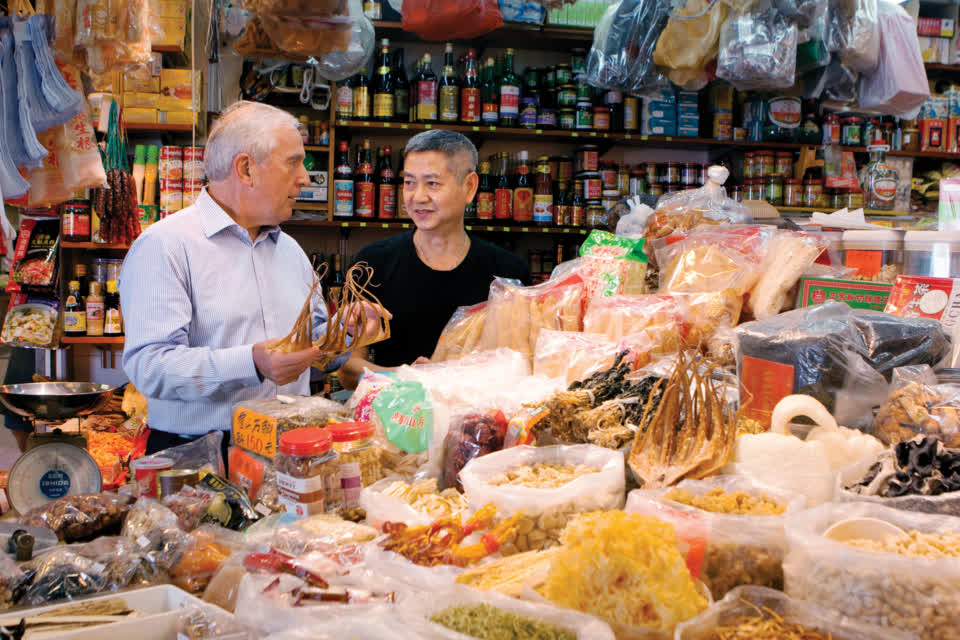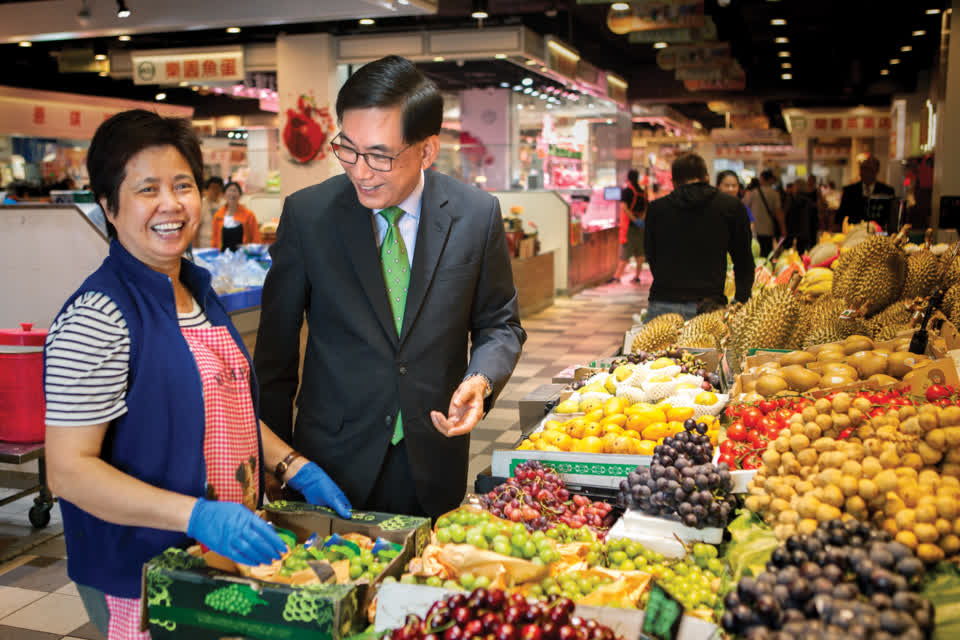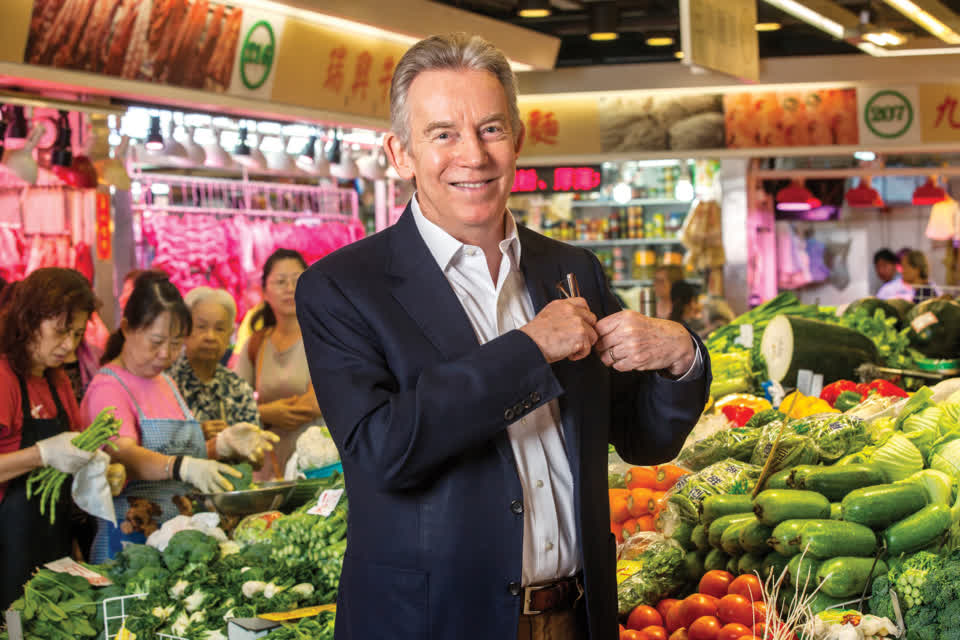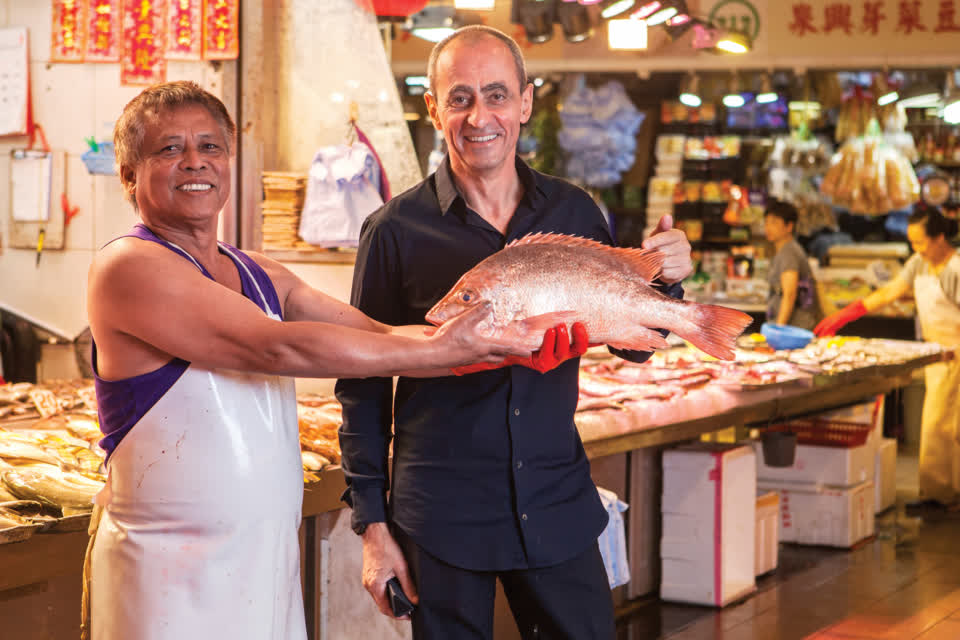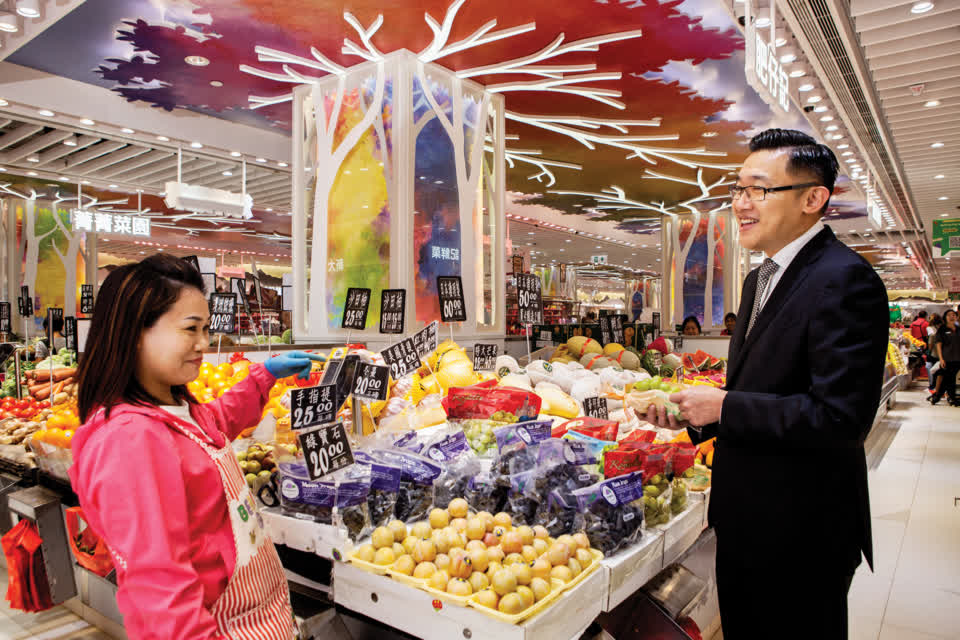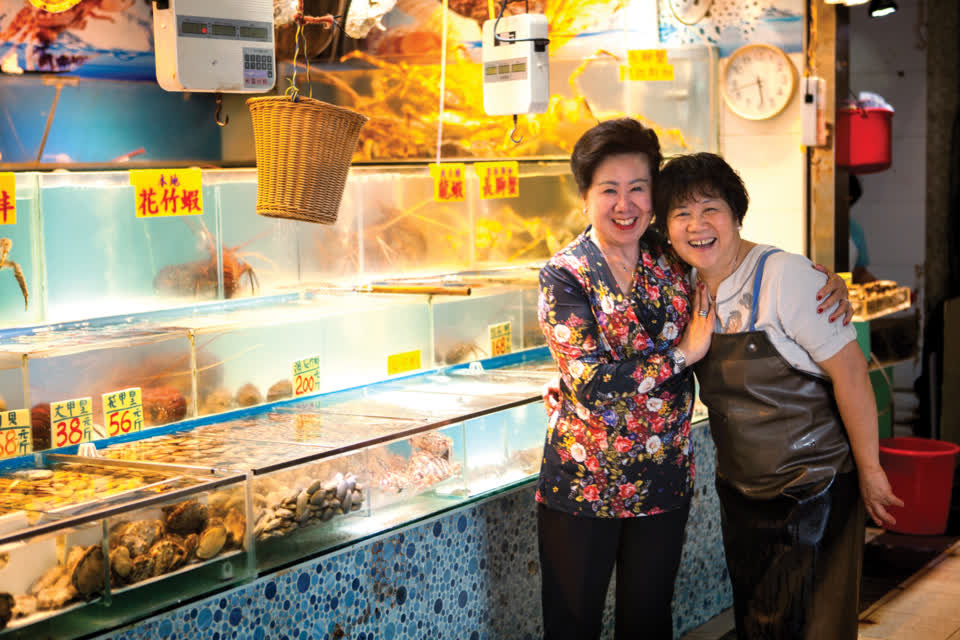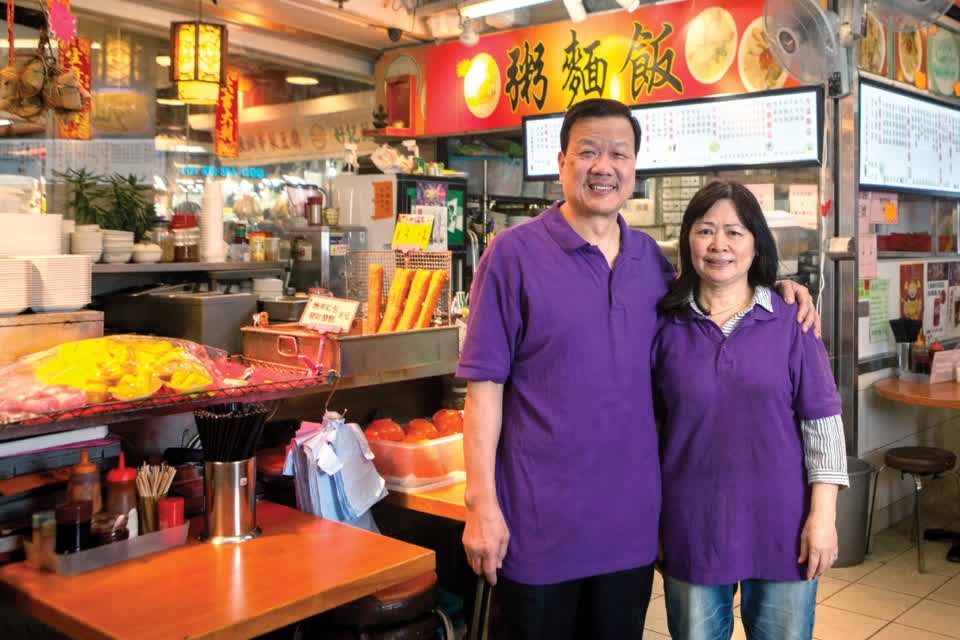Children can learn various new ideas when they join their parents shopping in the markets. By helping their parents choose what to buy, and hearing recommendations about foods, cooking methods and recipes from the stallholders, children can gain practical knowledge and also build an understanding of where their food comes from. The upgraded markets are a safe, clean and interesting environment for kids to visit.
Ling has a regular programme to familiarise young people with Hong Kong market culture.
“Every month we’ll organise some form of ‘markets study trip’, arranging visits for students from secondary schools, primary schools and even kindergartens, to let them experience what it is like in today’s modern markets.”
For the other end of the age scale, seating and social areas have been installed where older shoppers can sit and talk to each other, or just take a break in between shopping. There are TV screens in some social areas to let people watch and chat with one another. Markets should be a central part of society; not just a place to shop for daily groceries but a place for social gathering too. The cooked food areas are also places for people to catch up and chat.
“It’s a place full of kind gestures and genuine human warmth”
“We stress one thing very often in running our markets: it’s the customers’ emotions,” says Ling. “In supermarkets, from picking up the goods you need until you go to the checkout counter, basically no one will talk to you. The exchange between staff and customers is minimal, if there is at all. But the market is different. It’s a place full of kind gestures and genuine human warmth. Many shoppers go to the markets just because of the stall owner or a particular staff member.
“Hence we emphasise maintaining good customer service by taking care of customers’ emotions. For this we offer training to our stall owners on how to build relationships with their customers. For instance, be kind to them, and don’t be shy to ask for people’s names.”
Link is constantly adding new customer-friendly services, such as trolleys inside markets, customer service counters and market DJs. Promotional initiatives – like a seafood expo and hotpot festival – are organised to coincide with special events or holidays.
The market DJ is there to help stallholders promote their goods. Special offers or time-limited deals can be broadcast to shoppers in the market. In the summer holidays, children are even invited to try their hand at being a “little market DJ”.
“Link does the promotional work for us,” says Ma Lai-mei, a cha chaan teng owner at Lok Fu. “Sometimes they have charity sales and find celebrities like Maria Cordero to come and host cookery shows in the market. Recently, they have promoted a kind of American sweet potato, and many people came to buy them because of the promotion.”
“People now see top-class cooks using ingredients from our markets to create some really interesting dishes”
“We are very fortunate and pleased to say that we’ve had some of the Cantonese cooking shows come into our markets and demonstrate and use ingredients that are available,” says Allen. “It’s very much in the markets that you can get fresh ingredients, and a very wide range of ingredients, whether it’s the dried seafood products that go into providing different tastes as much as the vegetables and the meat. So it’s very positive, and we’re seeing genuine traction because these programmes have come out and people now see top-class cooks using ingredients from our markets to create some really interesting dishes.
“It’s good for us. It brings recognition to our markets. It is great for the tenants because they get a buzz when they see people coming around, and it creates footfall for people coming in to see it. So it’s a win-win all around for us, and whenever we can arrange cooking shows we are very pleased to do so.”
To keep standards high, Link runs a series of “Tenant Academy” idea-sharing sessions to help traders keep their stalls in good shape, and keep their product displays looking fresh.
